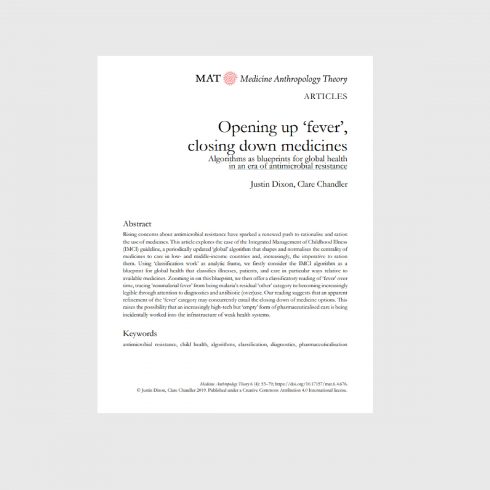Opening up ‘fever’, closing down medicines
Algorithms as blueprints for global health in an era of antimicrobial resistance
Clare Chandler, Justin Dixon
2026

Abstract
Rising concerns about antimicrobial resistance have sparked a renewed push to rationalise and ration the use of medicines. This article explores the case of the Integrated Management of Childhood Illness (IMCI) guideline, a periodically updated ‘global’ algorithm that shapes and normalises the centrality of medicines to care in low- and middle-income countries and, increasingly, the imperative to ration them. Using ‘classification work’ as analytic frame, we firstly consider the IMCI algorithm as a blueprint for global health that classifies illnesses, patients, and care in particular ways relative to available medicines. Zooming in on this blueprint, we then offer a classificatory reading of ‘fever’ over time, tracing ‘nonmalarial fever’ from being malaria’s residual ‘other’ category to becoming increasingly legible through attention to diagnostics and antibiotic (over)use. Our reading suggests that an apparent refinement of the ‘fever’ category may concurrently entail the closing down of medicine options. This raises the possibility that an increasingly high-tech but ‘empty’ form of pharmaceuticalised care is being incidentally worked into the infrastructure of weak health systems.
Keywords
antimicrobial resistance, child health, algorithms, classification, diagnostics, pharmaceuticalisation
View Publication > Share
Share






Commentary
The latest commentary on the use of antimicrobials in society.